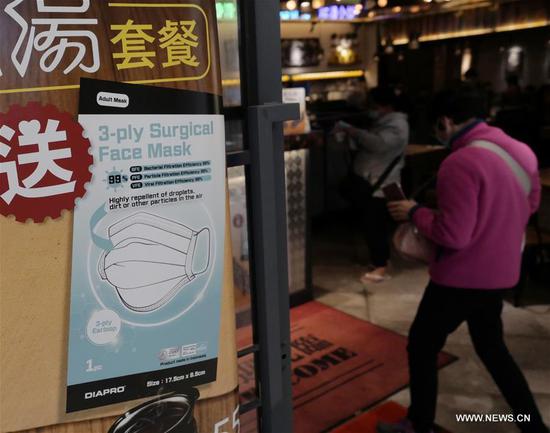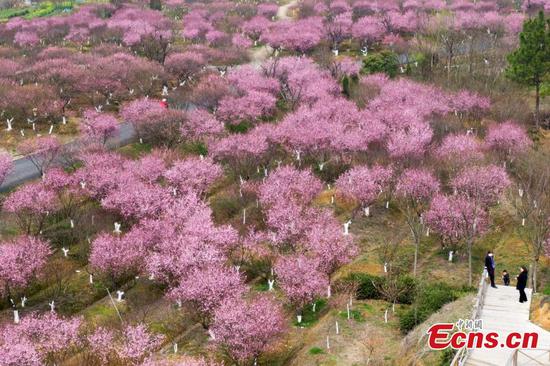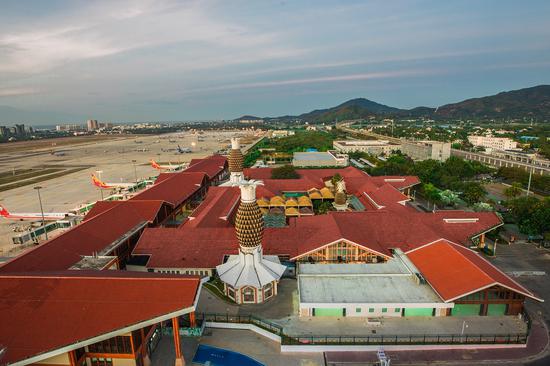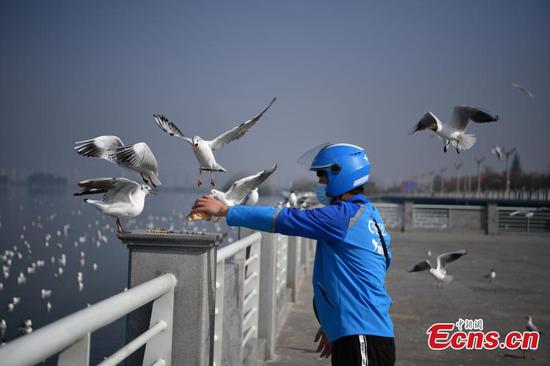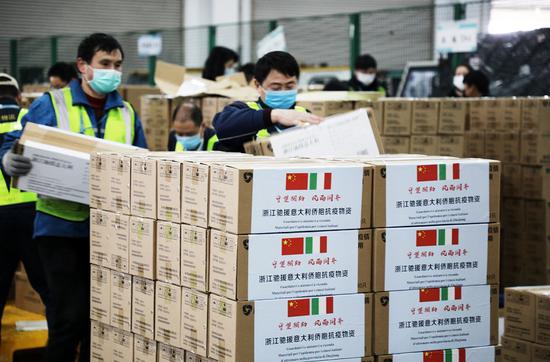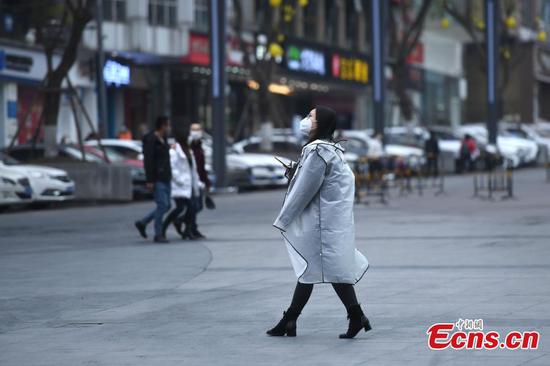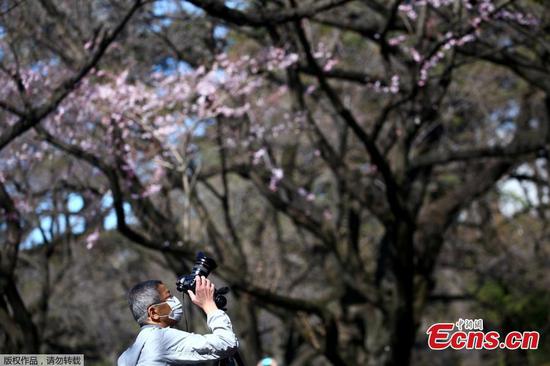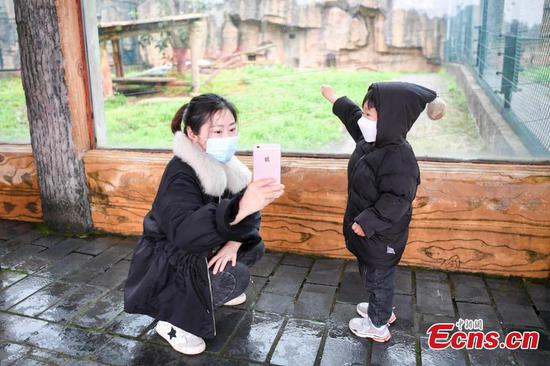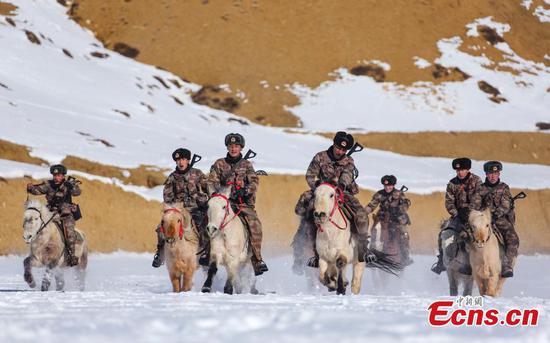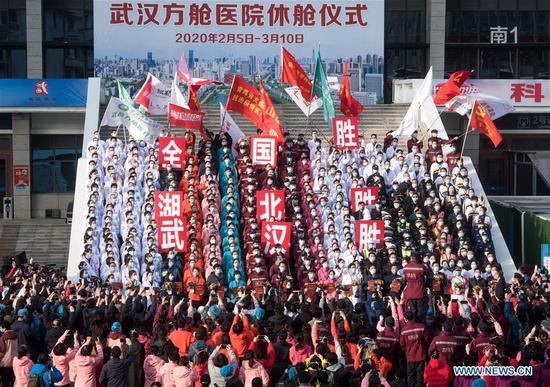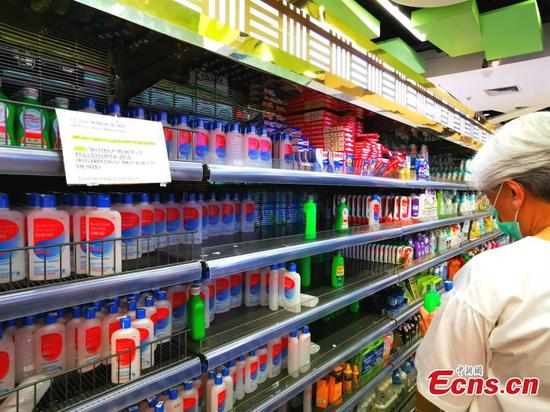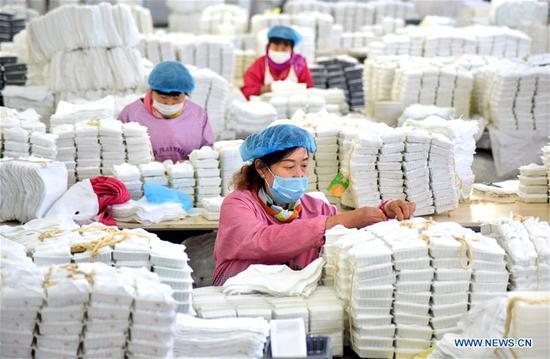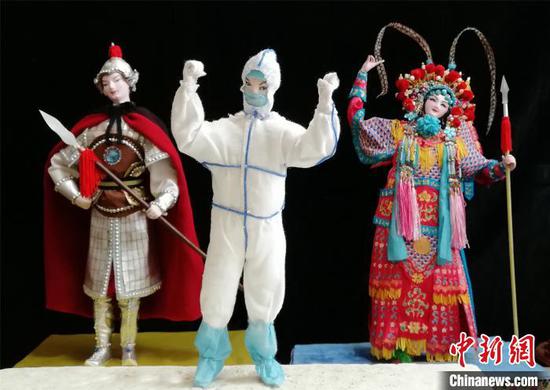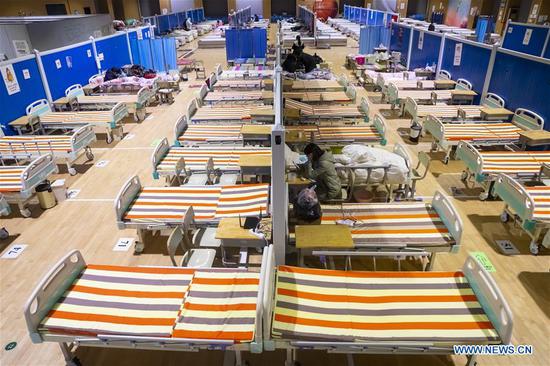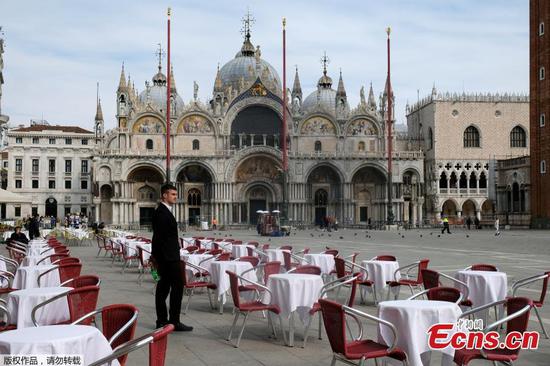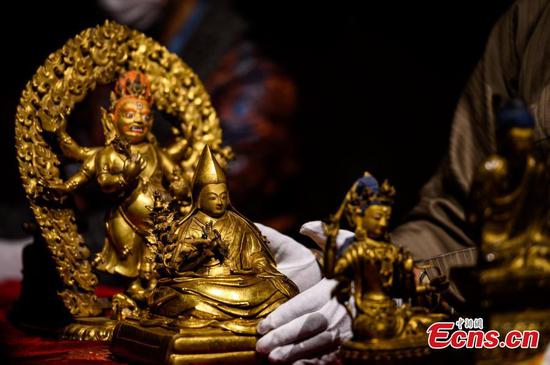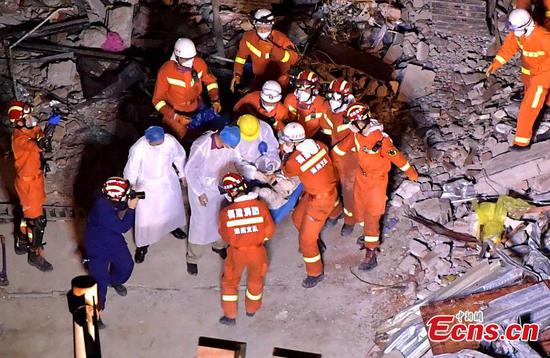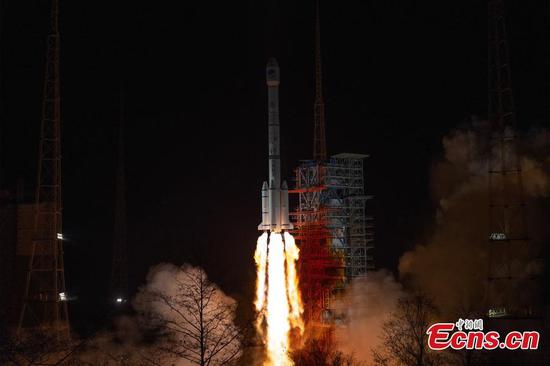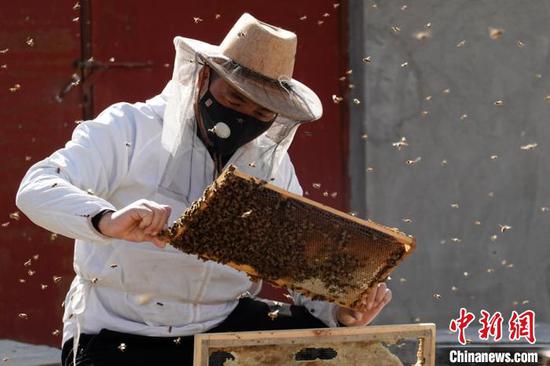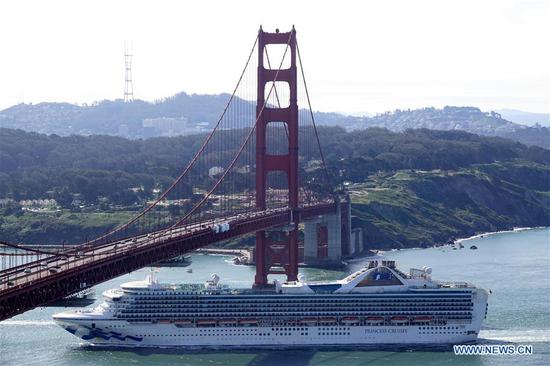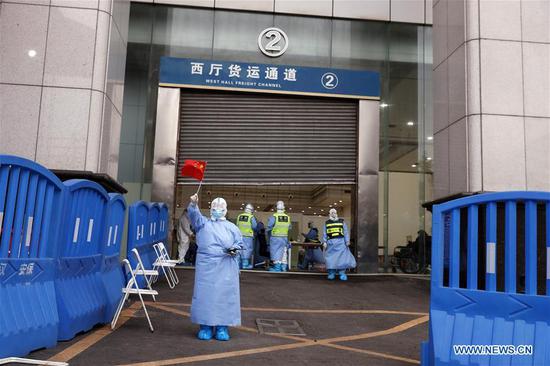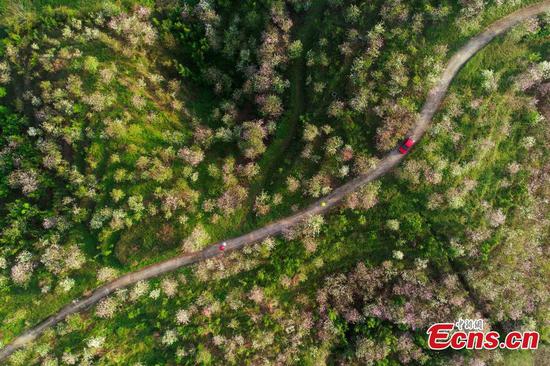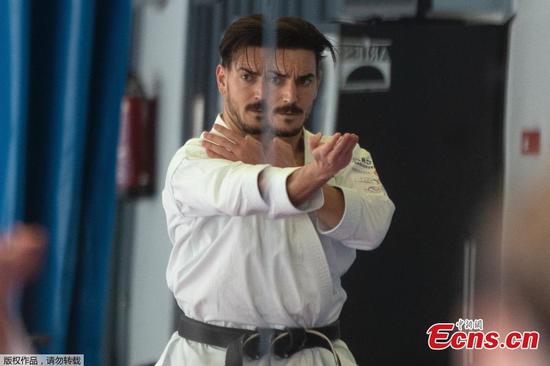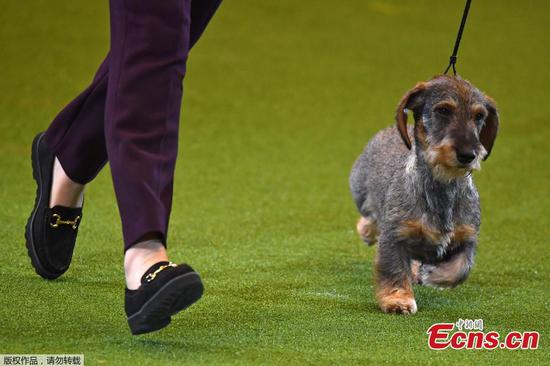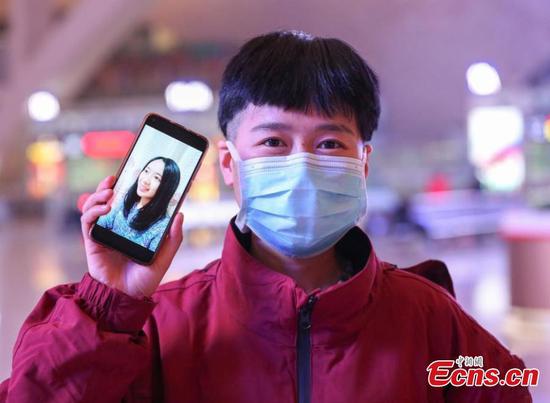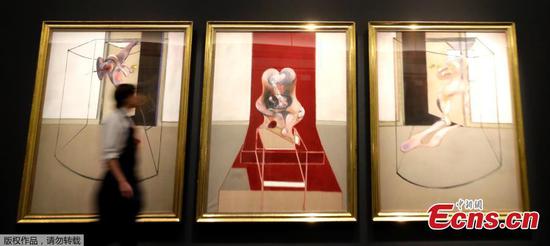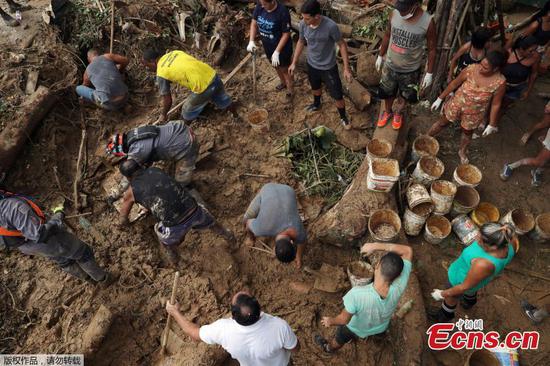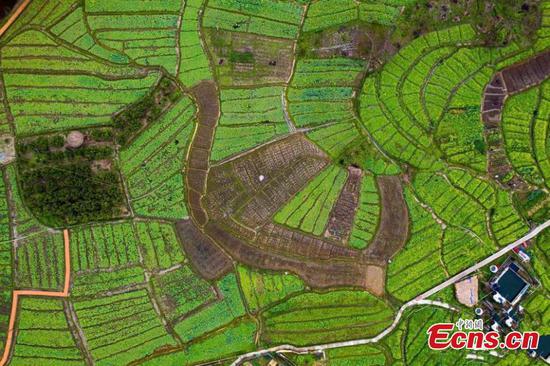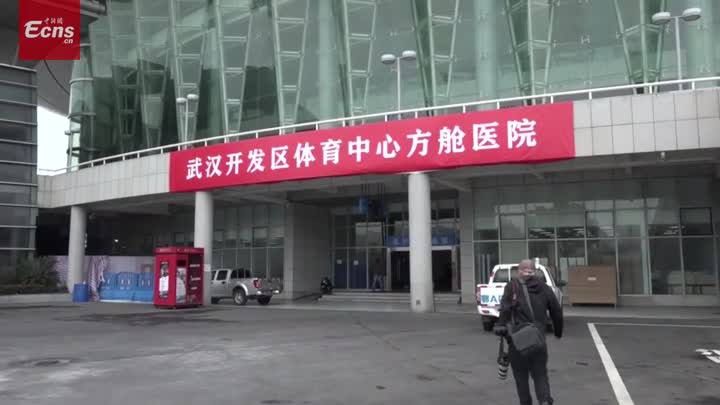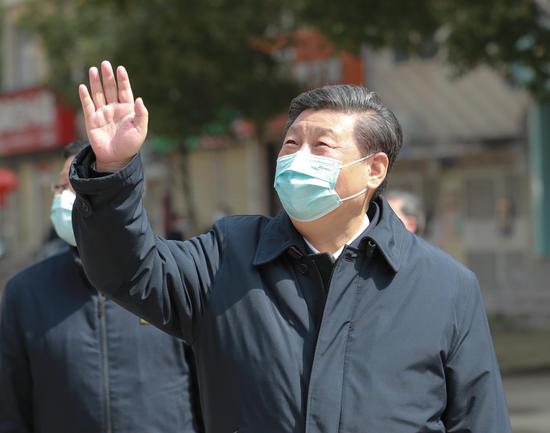
Chinese President Xi Jinping waves to residents who are quarantined at home and sends regards to them at a community in Wuhan, central China's Hubei Province, March 10, 2020. (Xinhua/Pang Xinglei)
As the novel coronavirus disease (COVID-19) has taken a foothold in over 100 countries and regions, the threat of a pandemic has become very real. Still, it would be a pandemic that could be controlled.
Questions revolving around the COVID-19 spread have been mostly about "when, where, and how." How to contain an uneven epidemic at the global level requires different countries tailoring their responses to their scenarios.
As China pledges a continuous fight toward victory with prevention and control efforts having "turned the tide," the effectiveness of its playbook is getting more and more worldwide attention.
Here is a review of the practice and experience of the country and its people encapsulated in the acronym "PROTECT" -- Party leadership, "renmin" for the people, openness and transparency, technology and science, early treatment, cooperation with the international community, and targeted and agile approach.
PARTY LEADERSHIP
For China, the COVID-19 outbreak is a major public health emergency considered to have spread fastest, caused the most extensive infection and has been the hardest to contain over the past 70 years. Defeating an invisible enemy of such ferocity would be impossible without the strong leadership of the Communist Party of China (CPC).
As chief of the World Health Organization (WHO) Tedros Adhanom Ghebreyesus noted, political commitment is needed in every country and an all-of-government and all-of-society approach should be adopted.
Under the unified and centralized leadership of the CPC Central Committee, China formed a central leading group on the epidemic, dispatched a central guiding team and demanded a State Council inter-agency task force play its full role in coordination. The country mobilized the whole of government and stayed aggressive in stemming from the virus, with the Chinese people showing a deep commitment to collective action in the face of the common threat.
With President Xi Jinping as the commander-in-chief, Party committees and governments at all levels act in a coordinated national response and follow unified command, coordination and dispatch. They unite as one like a fortress, fully implement the joint prevention and control measures, put up entrenched defense lines and build a strong synergy against the virus.
The solidarity of provinces and cities in support of the most vulnerable populations and communities has been remarkable. Despite ongoing outbreaks in their areas, governors and mayors have continued to send thousands of medical workers and tonnes of vital personal protective equipment supplies into Hubei Province and its capital city Wuhan, the epidemic epicenter.
China's progress in containing the virus should be attributed to government leadership and the cooperation of its people at the same time, Tedros told Xinhua. "It cannot happen without the strong commitment from the government and strong cooperation by the people."
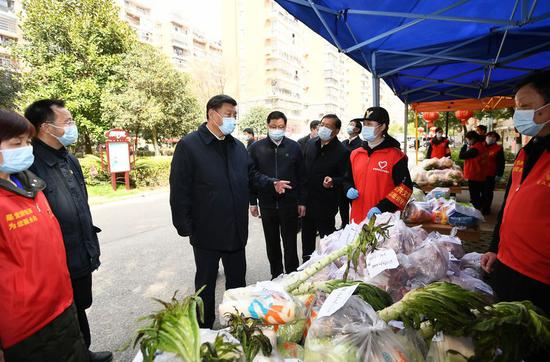
Since the outbreak, the CPC Central Committee has taken the most comprehensive, rigorous and thorough prevention and control measures to resolutely curb the spread of the virus in Wuhan and Hubei.
"All prevention and control measures taken by the CPC Central Committee against the virus are to prevent more people from being infected and save more patients' lives," said Xi, who is also general secretary of the CPC Central Committee and chairman of the Central Military Commission, on Tuesday during his inspection tour in Wuhan.
RENMIN: THE PEOPLE
Praising the people of Wuhan, Xi said the positive trend in epidemic control could not have been achieved without their sacrifice, devotion, perseverance and efforts. He also sent condolences to people who died in the epidemic and people who sacrificed their lives fighting on the front line on behalf of the CPC Central Committee.
The war on the sudden outbreak of COVID-19 is a people's war in essence. The country has been closely relying on "renmin" -- the people -- to win the people's war against the epidemic.
The people in Wuhan actively minimized outdoor exposure, canceled public gatherings and accepted travel restrictions, which for them meant staying at home most of the time and suspending normal routines.
Even so, they went to extra lengths to help. The city saw private business owners supplying free coffee and goggles to hospital staff while their businesses stalled, couriers offering to drive medical workers to and from hospitals and grocery store tallymen packing and delivering staples for each household to put food on the table for the city's 10 million residents.
About 20,000 volunteers have been serving as deliverymen, drivers, coordinators and community workers in grocery stores, neighborhoods and hospitals in Wuhan, with an additional 24,000 recruited since late February to meet the delivery needs of neighborhoods in the city, official data showed.
"China's success rests largely with a strong administrative system that it can mobilize in times of threat, combined with the ready agreement of the Chinese people to obey stringent public health procedures," said a recent editorial by Lancet, a prestigious medical journal.
With their concrete actions, Wuhan people have demonstrated the strength and spirit of China, as well as the Chinese people's love for family and the nation, which enables them to stick together through thick and thin, Xi said.









